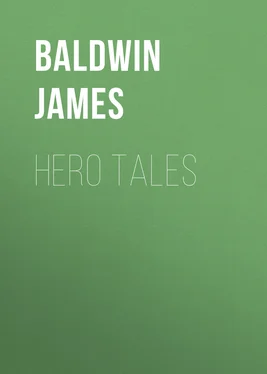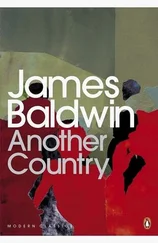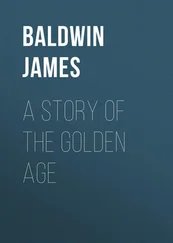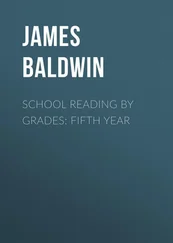James Baldwin - Hero Tales
Здесь есть возможность читать онлайн «James Baldwin - Hero Tales» — ознакомительный отрывок электронной книги совершенно бесплатно, а после прочтения отрывка купить полную версию. В некоторых случаях можно слушать аудио, скачать через торрент в формате fb2 и присутствует краткое содержание. Жанр: foreign_humor, Юмористические книги, Старинная литература, foreign_antique, на английском языке. Описание произведения, (предисловие) а так же отзывы посетителей доступны на портале библиотеки ЛибКат.
- Название:Hero Tales
- Автор:
- Жанр:
- Год:неизвестен
- ISBN:нет данных
- Рейтинг книги:3 / 5. Голосов: 1
-
Избранное:Добавить в избранное
- Отзывы:
-
Ваша оценка:
- 60
- 1
- 2
- 3
- 4
- 5
Hero Tales: краткое содержание, описание и аннотация
Предлагаем к чтению аннотацию, описание, краткое содержание или предисловие (зависит от того, что написал сам автор книги «Hero Tales»). Если вы не нашли необходимую информацию о книге — напишите в комментариях, мы постараемся отыскать её.
Hero Tales — читать онлайн ознакомительный отрывок
Ниже представлен текст книги, разбитый по страницам. Система сохранения места последней прочитанной страницы, позволяет с удобством читать онлайн бесплатно книгу «Hero Tales», без необходимости каждый раз заново искать на чём Вы остановились. Поставьте закладку, и сможете в любой момент перейти на страницу, на которой закончили чтение.
Интервал:
Закладка:
James Baldwin
Hero Tales
INTRODUCTION
In the world's literature there are certain stories which, told ages ago, can never be forgotten. They have within them that which gives pleasure to all intelligent men, women and children. They appeal to the sympathies, the desires, and the admiration of all sorts and conditions of mankind. These are the stories that are said to be immortal. They have been repeated and re-repeated in many forms and to all kinds of audiences. They have been recited and sung in royal palaces, in the halls of mediaeval castles, and by the camp fires of warring heroes. Parents have taught them to their children, and generation after generation has preserved their memory. They have been written on parchment and printed in books, translated into many languages, abridged, extended, edited, and "adapted." But through all these changes and the vicissitudes of time, they still preserve the qualities that have made them so universally popular.
Chief among these masterpieces of imagination are the tales of gods and heroes that have come down to us from the golden age of Greece, and particularly the tales of Troy that cluster around the narratives of old Homer in his "Iliad" and "Odyssey." Three thousand years or more have passed since they were first recited, and yet they have lost none of their original charm. Few persons of intelligence are unacquainted with these tales, for our literature abounds in allusions to them; and no one who pretends to the possession of culture or learning can afford to be ignorant of them.
Second only in interest, especially to us of Anglo-Saxon descent, are the hero tales of the ancient North and the stirring legends connected with the "Nibelungen Lied." Of much later origin than the Greek stories, and somewhat inferior to them in refinement of thought and delicacy of imagery, these tales partake of the rugged, forceful character of the people among whom they were composed. Yet, with all their austerity and sternness, they are replete with vivid action, and they charm us by their very strength and the lessons which they teach of heroic endurance and the triumph of eternal justice.
Scarcely inferior to these latter, but not so well known to English-speaking people, are the tales of knighthood and chivalry that commemorate the romantic deeds of Charlemagne and his paladins. Written in various languages, and at periods widely separated, these tales present a curious mixture of fact and fiction, of the real and the marvellous, of the beautiful and the grotesque, of pagan superstition and Christian devotion. Although there were, in truth, no knights in the time of Charlemagne, and the institution of chivalry did not exist until many years later, yet these legends are of value as portraying life and manners in that period of history which we call the Dark Ages; and their pictures of knightly courage and generosity, faithfulness, and loyalty, appeal to our nobler feelings and stir our hearts with admiration.
To know something of these three great cycles, or groups, of classic and romantic stories—the hero tales of Troy, those of the ancient North, and those of Charlemagne—is essential to the acquirement of refined literary tastes. For this knowledge will go far toward helping its possessor to enjoy many things in our modern literature that would otherwise be puzzling or obscure. The importance, therefore, of placing some of the best of such tales early within the reach of school children and all young readers cannot be disputed.
In three volumes somewhat larger than the present one—"A Story of the Golden Age," "The Story of Siegfried," and "The Story of Roland"—I have already endeavored to introduce young readers to the most interesting portions of these great cycles of romance, narrating in each the adventures of the hero who is the central figure in the group of legends or tales under consideration. The present volume, made up of selections from these earlier books, has been prepared in response to repeated suggestions that certain portions of them, and especially some of the independent shorter stories, are well adapted to use in reading-classes at school. Of the seventeen stories herein presented, nine are from the "Golden Age," four from "Siegfried," and four from "Roland." They are, for the most part, episodes, complete in themselves, and connected only by a slender thread with the main narrative. Their intrinsic value is in no way diminished by being thus separated from their former setting, and each tale being independent of the others, they lend themselves more readily to the demands of the schoolroom.
It is well to observe that in no case have I endeavored to repeat the story in its exact original form. To have done so would have defeated the purpose in view; for without proper adaptation such stories are usually neither interesting nor intelligible to children. I have therefore recast and rearranged, using my own words, and adding here a touch of color and here a fanciful idea, as the narrative has seemed to permit or as my audience of school children may demand. Nevertheless, in the end, the essential features of each tale—those which give it value in its original form—remain unchanged.
HOW APOLLO CAME TO PARNASSUS
A very long time ago, Apollo was born in the island of Delos. When the glad news of his birth was told, Earth smiled, and decked herself with flowers; the nymphs of Delos sang songs of joy that were heard to the utmost bounds of Greece; and choirs of white swans flew seven times around the island, piping notes of praise to the pure being who had come to dwell among men. Then Zeus looked down from high Olympus, and crowned the babe with a golden head-band, and put into his hands a silver bow and a sweet-toned lyre such as no man had ever seen; and he gave him a team of white swans to drive, and bade him go forth to teach men the things which are right and good, and to make light that which is hidden in darkness.
So Apollo arose, beautiful as the morning sun, and journeyed through many lands, seeking a dwelling place. He stopped for a time at the foot of Mount Olympus, and played so sweetly upon his lyre that Zeus and all his court were entranced. Then he wandered up and down through the whole length of the Thessalian land; but nowhere could he find a spot in which he was willing to dwell. At length he climbed into his car, and bade his swan team fly with him to the country of the Hyperboreans beyond the far-off northern mountains. Forthwith they obeyed; and through the pure regions of the upper air they bore him, winging their way ever northward. They carried him over many an unknown land, and on the seventh day they came to the Snowy Mountains where the griffins, with lion bodies and eagle wings, guard the golden treasures of the North.
In these mountains, the North Wind has his home; and from his deep caves he now and then comes forth, chilling with his cold and angry breath the orchards and the fair fields of Greece, and bringing death and dire disasters In his train. But northward this blustering Boreas cannot blow, for the heaven-towering mountains stand like a wall against him, and drive him back. Hence it is that beyond these mountains the storms of winter never come, but one happy springtime runs through all the year. There the flowers bloom, and the grain ripens, and the fruits drop mellowing to the earth, and the red wine is pressed from the luscious grape, every day the same.
The Hyperboreans who dwell in that favored land know neither pain nor sickness, nor wearying labor nor eating care; but their youth is as unfading as the springtime, and old age with its wrinkles and its sorrows is evermore a stranger to them. The spirit of evil, which would lead all men to err, has never found entrance among them, and they are free from vile passions and unworthy thoughts; and among them there is neither war, nor wicked deeds, nor fear of the avenging Furies, for their hearts are pure and clean, and never burdened with the love of self.
Читать дальшеИнтервал:
Закладка:
Похожие книги на «Hero Tales»
Представляем Вашему вниманию похожие книги на «Hero Tales» списком для выбора. Мы отобрали схожую по названию и смыслу литературу в надежде предоставить читателям больше вариантов отыскать новые, интересные, ещё непрочитанные произведения.
Обсуждение, отзывы о книге «Hero Tales» и просто собственные мнения читателей. Оставьте ваши комментарии, напишите, что Вы думаете о произведении, его смысле или главных героях. Укажите что конкретно понравилось, а что нет, и почему Вы так считаете.












